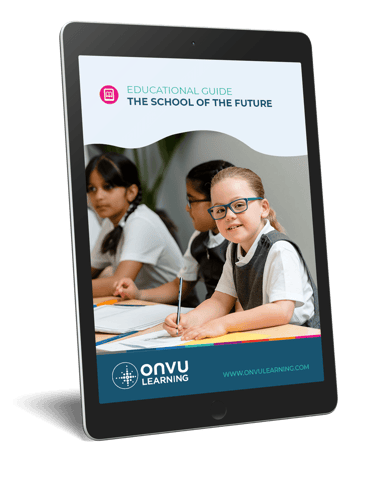- Self-Reflection
- 2 Minute Read


The ongoing realisation of the usefulness of video and of reflecting on lessons was underlined by the recent decision by Oak National Academy (England’s government-funded central lesson bank) to release videos showing how its teachers plan online lessons.
The videos are aimed at trainee teachers but should be of interest to all teachers as they show how the planning leads to actual online lessons (which you can also watch). And it should also make many teachers think about self-reflecting on their own lessons – given the number of remote lessons that many have recorded! So we’ve compiled a list of advice on how to reflect on remote lessons.
1. Start with a positive mindsetFor many teachers, any form of lesson observation can have negative connotations from being linked to their use in performance management. It’s important though to focus on learning from the lesson. Being able to reflect on the whole lesson and not focusing on finding fault and over-emphasising occasional behavioural issues is a much more positive and beneficial approach.
One advantage of remote learning videos is that without student interaction, the number of areas to focus on is somewhat limited. But that means you can focus on areas such as how you deliver explanations, or how you link assessment results back to the curriculum. You can also go back and study the same lesson for different reasons.
Students have used the power of video to pause, rewind and review parts of a lesson they might have struggled with. Teachers can do the same. Rather than watching a full hour lesson and trying to take it all in, break it down and focus on a few key areas and watch them again and again, perhaps looking at how different students have responded to your actions and instructions.
If you find areas that you’d like to look at, hypothesise different approaches you could have taken. Our case studies of work with Maths teacher Zahra Sahota at Aston University Engineering Academy shows how she drew on her teacher training experience to revisit the idea of using ‘traffic lights’ to assess understanding.
Video lessons provide an ideal opportunity to discuss teaching issues with a mentor, individual colleague or your teaching department. With the right software you can even share the correct video clip with them in advance, so they don’t have to watch the full lesson. For example with ONVU Learning you can share a specific portion of your lesson and get feedback on that section.
Whether you are back in school teaching ‘live’ or still working remotely, you can apply your new ideas – this may be especially useful if you are offering ‘catch-up’ lessons and perhaps re-teaching some of the material that you covered remotely.
You may not be in the position to record lessons in the classroom going forward (although we would be very happy to help you!) but you can still carry out self-reflection after every lesson – taking time to make quick notes and then going over them when you have more time. You can find out more about the full benefits of self-reflection and how to best practice it in our longer article here. You can also create your own ‘best practice bank’ that you can return to when faced with similar situations.

The School of the Future Guide is aimed at helping school leaders and teachers make informed choices when designing the learning environments of the future using existing and upcoming technologies, as they seek to prepare children for the rest of the 21st century – the result is a more efficient and competitive school.
KEEP IN TOUCH WITH ONVU LEARNING AND RECEIVE THE LATEST NEWS ON EDTECH, LESSON OBSERVATION, AND TEACHER TRAINING AND DEVELOPMENT.